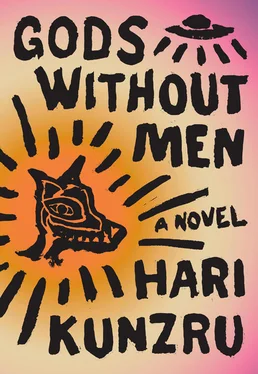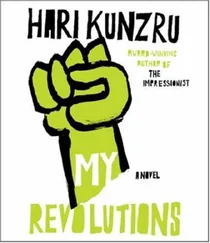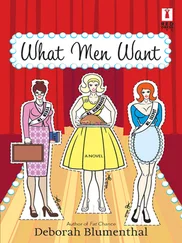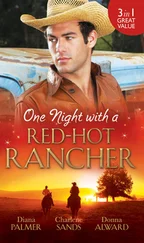Segunda said nothing, staring fixedly at the earth in front of her. Waghorn kicked the ground in exasperation.
“Tell us, or your scrawny ass is going to find itself sitting in jail right alongside them others.”
The old woman sat in stubborn silence. Deighton felt sick.
“Please, let’s just go. She can’t help us.”
“Well,” said Calhoun, raising himself to his feet. “If she can, she’s choosing not to.”
“Dale, you ain’t just going to let her get away with this?”
“Ellis, I don’t know how you get anything done at all with these people. You’re worse’n a rabid dog.” He looked at his watch. “Too late to make it back into town now and besides, I don’t think my butt’ll stand any more of riding about in that damn bone clanker. I told Mellish and Frankie Lobo to ride over to the Bar-T if there’s news. We’ll stay the night there and work this thing out in the morning.”
Waghorn and Calhoun started walking back to the car. Deighton crouched down next to Segunda.
“Are you all right? Are you hurt?”
She didn’t speak. He made an ineffectual attempt to brush the dust off her shawl, then held out his hand, offering to help her stand up. She ignored it, keeping her eyes firmly fixed on the patch of dirt in front of her. Finally he walked away. As they drove off, the dogs trotted after them, their tongues lolling out. They looked as if they were laughing.
At Craw’s ranch, Deighton refused dinner and went straight to the bunkhouse, where he lay awake for some hours, his face to the wall. Much later he heard others come in. A man climbed into the bunk above him. He pretended to be asleep.
At dawn, two deputies and an Indian policeman from the large reservation near Victorville arrived in the town’s official car, a four-door Studebaker. Sometime in the night, Union Pacific employees working at a depot thirty miles north of the Bar-T had sighted an Indian running through the desert, carrying a young white boy. They said he seemed to be heading for a range of mountains known as the Saddlebacks. When Deighton heard this, he wondered how a couple of men standing outside in the middle of the night could see so far into the distance.
“Did they by any chance say anything about a light?”
“What kind of light?”
“From the boy. Did they say the boy was giving off light?”
Everyone looked at him like he was insane.
There was more news. A family of homesteaders down near the mineral pool at Palm Springs had lost a boy two months previously. Ten years old, he’d last been seen climbing rocks in the vicinity of an old mine working. For most of the men gathered round Danville Craw’s scarred pine table, that clinched it. There was a missing boy and a kidnapper. The only question was how to proceed with the manhunt. Once again, Deighton spoke up.
“There’s no way the boy I saw was ten years old. He couldn’t have been more than six, seven, at most.”
“Professor,” said Calhoun carefully, “thanking you for your concern, but I reckon it’s time you got back to your books. I’ll handle it from here on in.”
“You’re sending riders up into the Saddlebacks?”
“I imagine that’s how it’ll pan out.”
“I want to go with you.”
“What?”
“You heard. I want you to deputize me.”
“With respect, Professor, I don’t think that’s such a good idea.”
Craw, drinking coffee with his feet up on the table, laughed scornfully. Deighton turned on him. “I know the language. I’m certainly a damn sight better at dealing with Indians than that fool Ellis Waghorn. And I have the Ford. I think I’d be very useful.”
Calhoun shook his head. “You reckon on tracking him in your automobile? That Indian ain’t sticking to no roads. He’s somewhere out in the Saddlebacks, climbing for all he’s worth. Your flivver ain’t gonna be worth shit once we get past the rail depot.”
“I can ride.”
“You got a horse?”
“I’ll borrow one from Mr. Craw here.”
“Hell you will.”
“Then I’ll buy one. I’ll give you a fair price.”
Calhoun thought for a moment. “Well, we do need every man we can get. But what about your health, if you don’t mind my asking? If you can’t keep up, we ain’t gonna be able to wait on you.”
“Let me worry about my health.”
“All right, then. I’ll swear you in.”
“Thank you, Sheriff Calhoun.”
“One thing, Professor, before I do. I’ve seen how you rub people up the wrong way. You come along on this and you’re under my authority. I know about how you was a college man and an officer in the war and heaven knows y’all got the scars to prove it. But you ain’t no officer now. You’re just a deputy. So you do as I say and keep your mouth shut, ’specially around Ellis Waghorn. I won’t stand for no more incidents like yesterday.”
The speech made Deighton furious, but he nodded assent.
“OK. Raise your right hand. Do you swear to keep and preserve the peace in the county of San Bernardino, and to quiet and suppress all affrays, riots and insurrections, for which purpose, and for the service of process in civil and criminal cases, and in apprehending and securing any person for felony or breach of the peace you may be called upon at such time as needed?”
“I do.”
“By the authority vested in me, I appoint you a temporary deputy of this county. Get the man a horse, Danville.”
Deighton walked with Craw to a corral near the bunkhouse. The place was a mess, crates stacked up in teetering piles against a tumbledown shed, bits of tack hanging higgledy-piggledy from the hitch rail. In the pen, five half-wild mustangs stepped and kicked, shying away as the men drew near. Craw unpromisingly described them as “green broke.” Privately Deighton thought that was an overstatement.
“Don’t you have any properly trained horses?”
“Well, listen to him. Yes, sir, I do. Trouble is my men took them. You want to try out one of these or have you changed your mind?”
A few hands drifted over to the rail to watch. Deighton pointed at a bay that seemed marginally more docile than the others. Craw ducked under the fence and slipped a hackamore over its head, then walked it around with a lead rope as it stamped and shied. Deighton stuck with his choice. It was impossible to say whether it was considered good or bad by the authorities leaning on the rail. The horse skipped from side to side as he mounted, turning its head and eyeing him angrily. He trotted it a couple of times around the corral without incident, then tied it to the rail. Deighton had learned to ride English-style back east. This was different; even the tack was strange, the big square-skirted saddle with the high pommel, the unfamiliar bridle. Craw looked appraisingly at him and started to talk money. Once they’d agreed on a price, an exorbitant amount that Deighton secretly knew he had no means of paying, he joined the other posse members getting ready, filling a canteen, retrieving his bedroll from the car, packing a leather bag with some tinned beans and franks, a razor, a bar of soap, Friar Garcés’s book. All about him, men were cinching saddles, slipping carbines into scabbards. He saw Ellis Waghorn watching him, his lip curled. For a moment Deighton imagined him being hit by a howitzer blast, leaping high in the air.
They rode out an hour later. As the sun rose higher, they followed the line of barbed-wire fence that demarcated the Bar-T from the BIA reservation. A fine cloud of white limestone dust rose up over the horses, settling on the riders like sieved flour. Ahead of them the desert stretched away in the direction of the Saddlebacks, a serrated ocher ridge rising abruptly from the white plain. As they headed away from Craw’s land, they climbed up through fields of rounded boulders, dipping down again into wide sandy washes, a rhythm that began to vary only as they neared a formation of dunes. Around noon they sighted a line of telegraph poles. Half an hour later they hit the railroad track and followed it until they came to the adobe buildings and big metal water tank of the railroad depot.
Читать дальше












